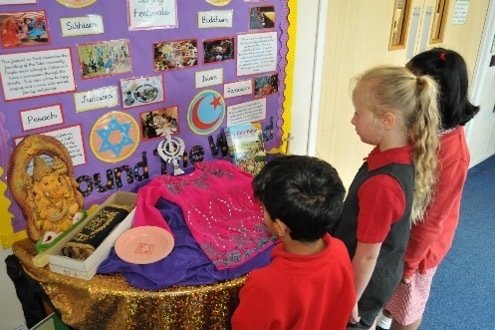Religious Education (R.E.)
The RE curriculum at New Oscott Primary School is planned and delivered with careful consideration of our core values – honesty, respect, co-operation, kindness, determination and co-operation. We value all our pupils as the unique individuals they are and endeavour to celebrate them through RE experiences, including collective worship and assemblies. We want our children to gain a wider knowledge of the world; to understand something about different communities and faiths; to respect differences and to be able to reflect on their own beliefs and values, religious or otherwise. We pride ourselves on being an inclusive school and we feel it is essential that our children learn about the diversity of the world around them.
The teaching of RE forms part of our school’s Spiritual, Moral, Social and Cultural (SMSC) Education. It contributes towards a broad and balanced curriculum which promotes the spiritual, moral, social and cultural development of our pupils and helps to prepare them for life in a diverse world. We encourage our children to share their experiences and to use the information they have from their family, communities, friends and the media to ask or answer questions. RE is an opportunity to broaden our knowledge of different beliefs and to reflect on our own. It enables our children to begin to make sense of the community and the world around them, and to draw comparisons between different religions, cultures and beliefs.
|
Find out more about the Intent, Implementation and Impact for our R.E. Curriculum in our Curriculum Expectations. R.E. Curriculum Expectations |
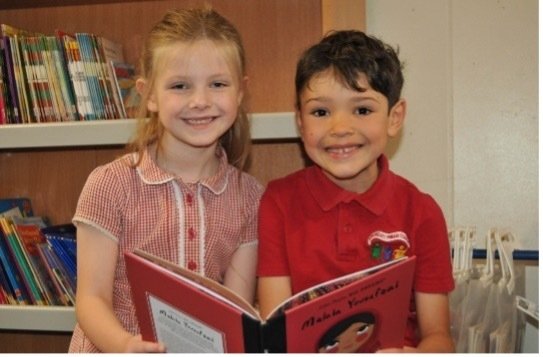 |
Early Years
Within Nursery and Reception RE is delivered through Personal, Social and Emotional Development (see the PSHE page for more details) and Understanding the World (UW).
The Early Years Framework identifies seven areas of learning and development that must shape educational programmes in early years settings, with UW being one of four areas which support the three prime areas of communication and language, physical development and personal, social and emotional development all of which are important for building a foundation for igniting children’s curiosity and enthusiasm for learning, forming relationships and thriving.
“Understanding the world involves guiding children to make sense of their physical world and their community. The frequency and range of children’s personal experiences increases their knowledge and sense of the world around them – from visiting parks, libraries and museums to meeting important members of society…. In addition, listening to a broad selection of stories, non-fiction, rhymes and poems will foster their understanding of our culturally, socially, technologically and ecologically diverse world. As well as building important knowledge, this extends their familiarity with words that support understanding across domains.”
(Statutory framework for the Early Years Foundation Stage - Setting the Standards for Learning, Development and Care for Children from birth to five, DfE, 31 March 2021)
At New Oscott Primary School the foundations of RE are delivered through planned activities, stories and child-led discussions. EYFS staff aim to support children in understanding and valuing the differences within our community. Throughout the year, many worldwide festivals are explored and children have opportunities to look at traditional objects, food, and consider similarities and differences between celebrations. Children are encouraged to reflect on their families, special times and special places.
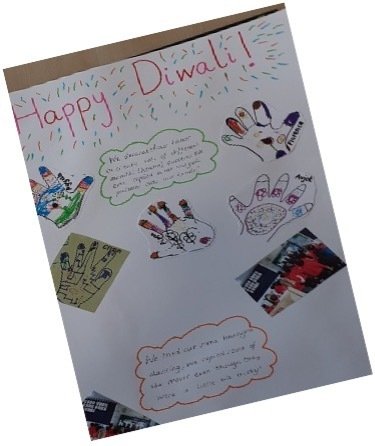 |
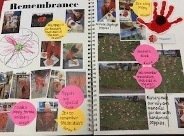 |
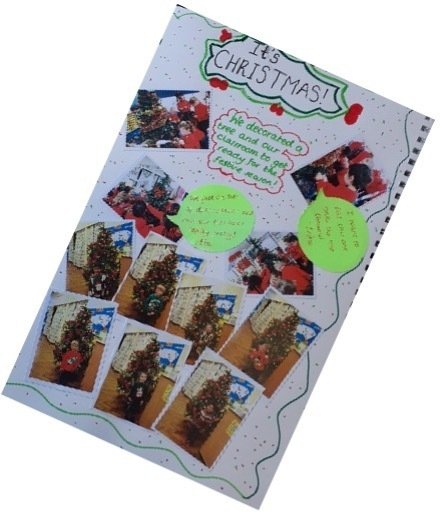 |
 |
 |
Key Stages 1 and 2
In Key Stages 1 and 2 each year group follows the Birmingham Agreed Syllabus for RE, which is supported by the Discovery RE Scheme of work.
Discovery RE is enquiry-based which advocates the holistic study on one religion/belief system at a time to avoid confusion. Throughout their time at New Oscott Primary School, our children will begin to identify similarities and draw comparisons between different faiths. Through a four step, enquiry based approach, they will draw upon their own experiences, as well as being given the opportunity to understand and respect the experiences of others, challenge ideas about religion and recognise intolerance.
Through investigation style lessons, our children will discuss different values and ideas to lead the learning from the initial enquiry. Each module is based on a question pertinent to the religion being studied. The children then use their own experiences to help them understand how and why different beliefs are followed. This allows the children to identify with differing ideas based on their own lives, making their learning more accessible and relevant to them.
For each year group, there are six enquiry modules based on the six principle religions. Christianity is taught in all year groups alongside at least one other principle religion for our community. This enables our children to build an understanding of different religions over their Primary School years.
|
Units and lessons are tailored to suit our children and their backgrounds or beliefs, whilst meeting the national curriculum guidance for RE and promoting the spiritual, moral, cultural, mental, and physical development of our pupils. |
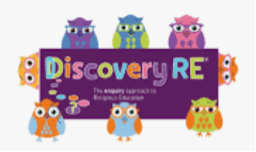 |
In September 2022 floor books were introduced to record lessons and learning. One book is shared between a year group and teachers use a variety of recording methods to reflect the pupils discussions or work and the outcome of lessons. At the end of each unit assessment ideas are provided via the Discovery scheme and teachers can select the most suitable way to assess their class to inform future planning. These assessments can take the form of written activities, class discussions and targeted questioning, dependent on the unit of work and the children’s needs.
Pupil Voice
When asked about R.E, our pupils say ....
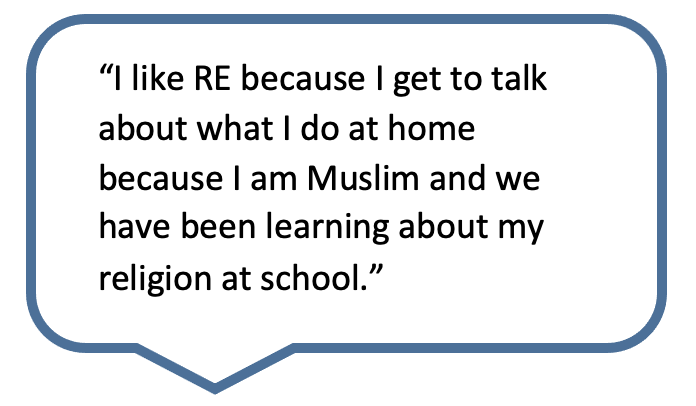 |
 |
 |
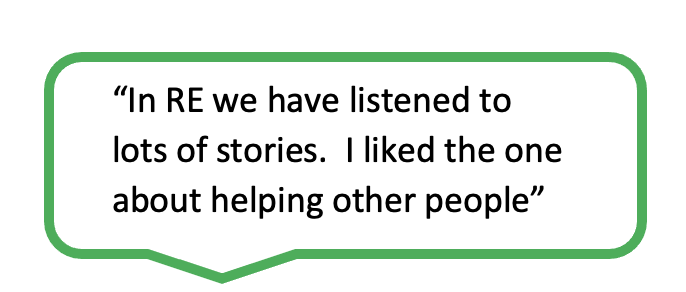 |
 |
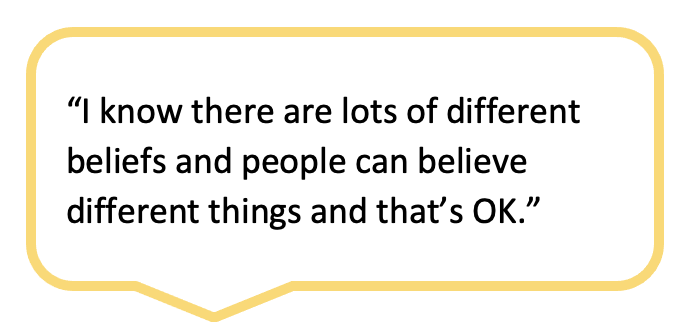 |
Parents have a statutory right to withdraw their children from Religious Education and worship. Any parents considering withdrawing their child(ren) from this area of the curriculum should put their requests in writing to the Head Teacher via enquiry@newoscott.bham.sch.uk. They are very strongly urged to discuss the matter with the Head Teacher in advance of any such decision.






